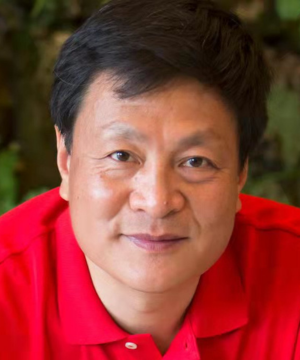As the world grapples with climate-related issues such as floods, droughts, and fires, how can we climate-proof our cities? Landscape architecture methods designed in the West fail to fit the drastically different climates of other parts of the world. Sponge Cities, based on thousands of years of Chinese climate adaptation, offer an alternative framework for urban architecture to climate-proof cities by embracing water instead of fighting against it. How can other parts of the world learn from China’s Sponge Cities?
Kongjian Yu joins the National Committee on June 2, 2025 to explain how ancient Chinese wisdom can combat climate change in urban architecture.

Kongjian Yu
Kongjian Yu received his Doctor of Design Degree at Harvard Graduate School of Design in 1995 with a dissertation titled ‘Security Patterns in Landscape Planning.’ He then practiced as a landscape planner and designer for two years with the SWA Group in the US before he returned to China in 1997. Since then, he has been a professor of landscape architecture, and urban and regional planning. He founded and has been leading the Graduate School of Landscape Architecture, and the College of Architecture and Landscape Architecture at Peking University.
For over 25 years, he has spent his academic career fighting against deteriorating urban ecologies and the environment. His pioneering research on Ecological Security Pattern (1995) and Ecological Infrastructure, Negative Planning and Sponge Cities (2003) has been adopted by the Chinese government as guiding theory for nationwide ecological protection and restoration campaigns. He is a leading member of several national expert committees, including vice president of the Society of Urban Studies. Chairman of the Beautiful China and Landscape Architecture Committee, Deputy Director of the National Sponge City Expert Committee, and Deputy Director of the National Human Settlement Committee at the Chinese Ministry of Housing and Urban and Rural Development. He is the editor and/or author of several text books authorized by the Chinese central government and ministries to train Chinese officials.